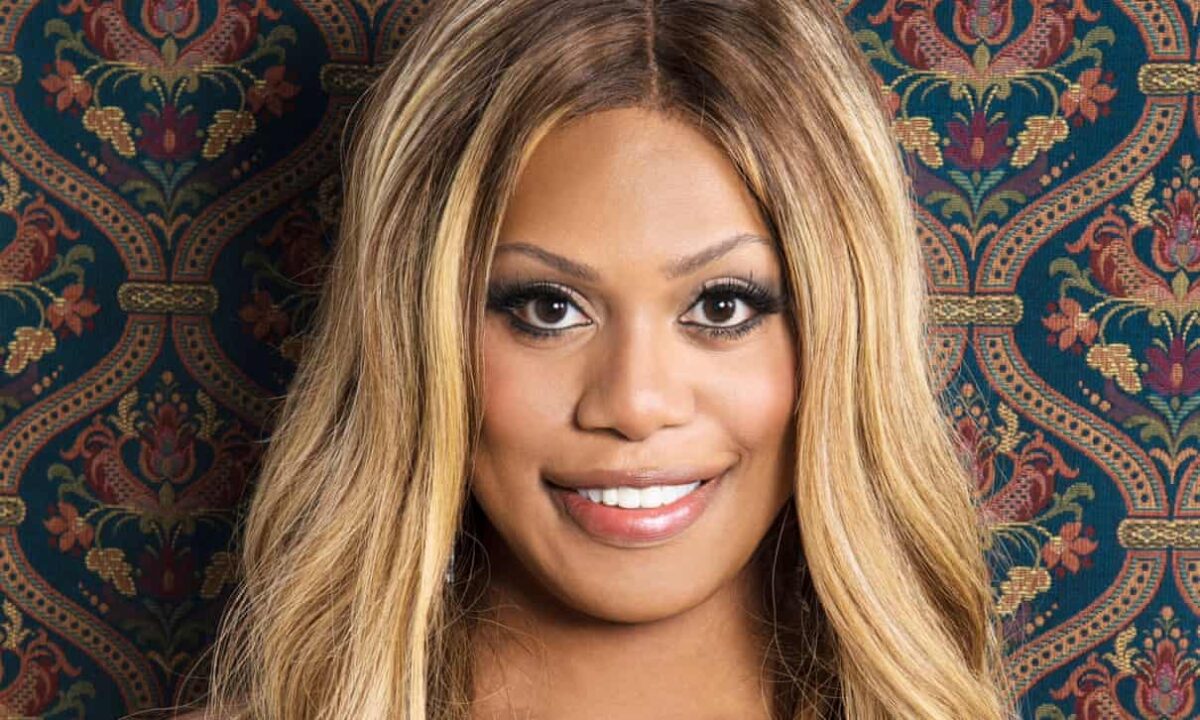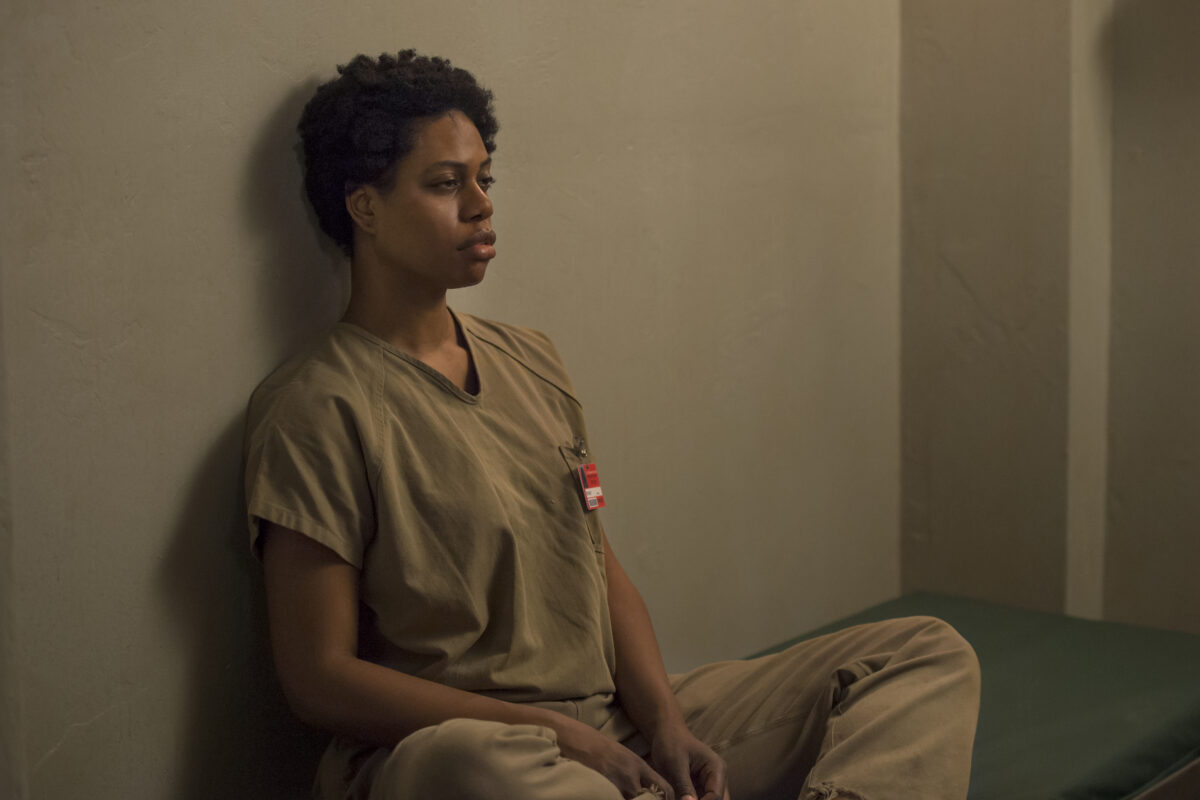To the world, she is a legend. A star, an activist who doesn’t shy away from pursuing her goals. Laverne Cox rose to greatness with her most celebrated role from ‘Orange is the New Black’ as Sophia Burset. Since then, she has become the catalyst for instigating changes in how the LGBTQ+ community is perceived within Hollywood.

Cox has become an advocate for self-love and gracefully achieved all those barriers set for trans people within the industry. But amidst all this stardom, do we really know the individual she was in the past? The duration in her life that constantly tormented her and propelled her to contemplate suicide?
“There has to be a bigger reason why I was nominated, and maybe the bigger reason is to highlight the unbelievable talent of trans folks who are working in television right now,” mentioned Cox in her interviews with IndiWire. She also added that,
“I would love to encourage Emmy voters to consider some of the other trans talent. It’s an honour but it’s also responsibility comes with that I think to hopefully as much as I can elevate the work of other trans folks working.”
Since then, Cox has taken an oath to establish herself through diverse platforms. From appearing on her first solo cover of Out Magazine and hosting the iHeartRadio’s Can’t Cancel Pride virtual benefit concert to finally producing her new Netflix documentary, Disclosure. Cox’s perseverance doesn’t seem to fade from the spotlight.

Laverne Cox’s childhood
Before she set foot in the glamorous world of cinema, Cox’s life was miserable and dark, suffocating her from the inside. At 11, she attempted suicide because of being constantly bullied as a child and being addressed with derogatory terms. She was teased and insulted for not acting the way a ‘male assigned at birth’ was ‘meant’ to behave. She would usually be chased out of school by a group of kids, who also would mercilessly beat her up for being who she was.
Cox was born in Mobile, Alabama, raised by a single mother and grandmother. In a conversation with the Huff Post, Cox revealed that,
“I was bullied and I internalised a lot of shame about who I was as a child.The suicide attempt happened when I was in sixth grade and I was having all these feelings about other boys. And I didn’t want to live.”
Cox was raised with her twin-brother, M Lamar, who is a musician of his own right. During her pre-transition persona on the set of ‘Orange is the new Black’, her twin brother adorned the role of ‘Marcus’ for the show. Cox talks to Conan O’Brien back in 2014 and states the hilarious scenario when M. Lamar was mistaken for Cox in public.
Though there were moments of relief and minuscule amount of joy that engulfed Cox, she endured mental trauma as a young child. Even her teacher at school complained to Cox’s mother that, “Your son is going to end up in New Orleans in a dress if we don‘t get him in therapy right away.” This relentless homophobic bullying as a child, surprisingly didn’t destroy her but somehow enhanced her to be a fighter!

Cox moved to pursue dance from Alabama School of Fine Arts. This was the turning point in her life. She slowly began accepting the person she is. In her late teens, she moved to New York and started training in acting. Back then, she identified as ‘gender non-confirming’. Shunned by the society that bullied her, she finally took a stand for herself and took the bold step to transition.
Her only liberating factor was to ‘Go out and dance!’ Nothing mattered to her more than having fun and dancing all night to music. That’s where she found peace and gratification. The New York nightlife was Cox’s getaway medium and she felt genuinely pure about her characteristics. In an interview with The Guardian, Cox openly addressed that, “A lot of black transgender women aren’t so lucky, but I was able to perform and put together a look that was able to fly.”
The 2020 documentary – Disclosure
In the documentary, Disclosure, she discusses the unprecedented, eye-opening depictions of transgender individuals in film and TV. She reflects on the Hollywood mantra that manufactures the deepest anxieties and stress about gender identity. Many artists like Lilly Wachowski, Yance Ford, Mj Rodriguez, Jamie Clayton, and Chaz Bono joined Cox to share their annotations of how Hollywood has degraded the image of transgender persons in many movies. Many of these films being some of the world’s most beloved.
Like the 1914 D.W. Griffith film Judith of Bethulia, one of the earliest feature-length silent films that shows a gender non-confirming character circling around a decapitation scene, which could potentially suggest the notion of the character being ‘cut’ or castrated. The director of Disclosure, Sam Feder painfully reckons with this historic film to point out D.W. Griffith’s ignorance at that time as a film-maker. In an interview with the Time, Feder stated, “Though Griffith’s racist perspective is well-documented (Watch: The Birth of a Nation), the fact that he made the gender non-conforming body “the butt of a joke” has been historically overlooked when discussing his work.

Besides the magnitude of roles she has represented, Cox loves the notion of Sophia Burset on ‘Orange is the new Black’. She thoroughly enjoys every bit of Sophia’s character sketch that is so full of love and purity. Before the big screen found her, Cox used to go on tours to college campuses in the US and Canada to lecture, ‘Ain’t I A Woman’. Performing on stage as a dancer or artist was her path to freedom, but acting gave her a whole new purpose in life – ‘The motto to become the voice of the voiceless.’
Her acting became her part of her identity. Not just that, Cox also wrote pieces on gender diversity for the Huffington Post and spoke in Albany for the passage of the Gender Expression Non-Discrimination Act. But life had bigger goals for her. She got the bigger platform, a bigger frame to be the face of change for the LGBTQ+ community in the world of cinema. Her work continues to reflect the many conventions and misconceptions that surrounds the LGBTQ+ community.

Today, she stands tall as an advocate for openly addressing transgender issues. There is so much to Cox’s persona, so many facets to celebrate about her but what will remain in the hall of fame is her guts to thrash the narrow mindedness of people towards trans people.
Cox will always be remembered for changing the face of LGBTQ+ community within the realms of the Hollywood industry.
Subscribe to FIB’s Weekly Alchemy Report for your weekly dose of music, fashion and pop culture news!







